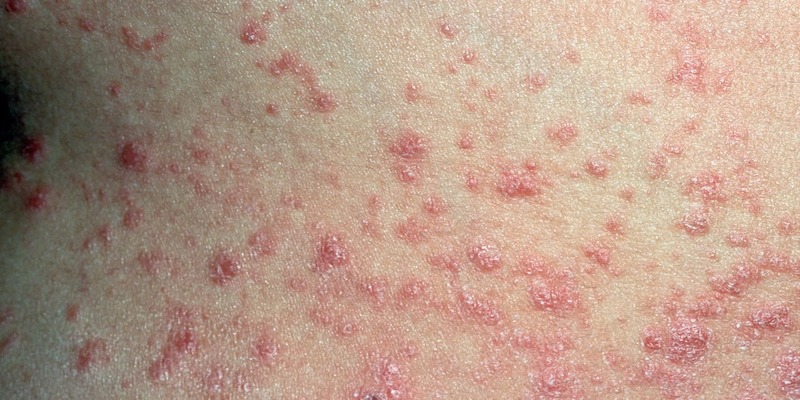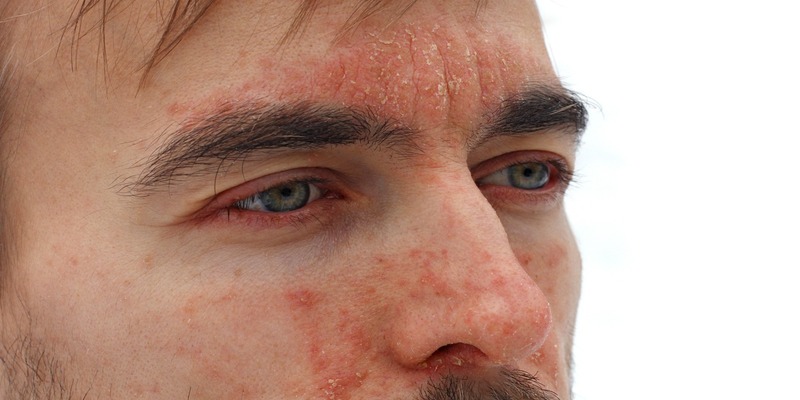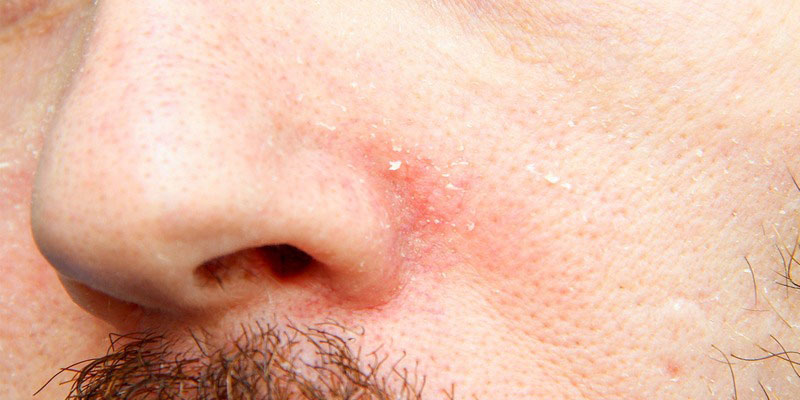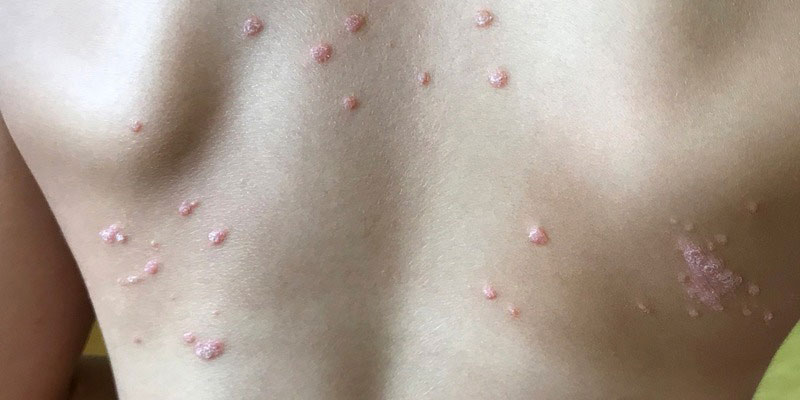Psoriasis is an autoimmune illness characterized by inflamed regions of the skin. People with the most common kind of psoriasis, grow large patches of white, scaly skin, called lesions.
These sores can appear everywhere on the body, but the elbows, knees, and scalp are the most common places they manifest. Psoriasis affects over 7.5 million Americans. You may be wondering whether psoriasis is infectious.
Can the disease be spread by touching a person who already has it? We address your questions, including what causes psoriasis and how to lower your risk of flare-ups.
How Infectious Is Psoriasis?

Psoriasis never spreads to other people. Unlike certain skin illnesses such as scabies psoriasis isn't caused by infectious bacteria or infection.
Psoriasis is an autoimmune disease. According to the American Academy of Dermatology (AAD), you must have particular genes to get the condition. Having the gene doesn't always guarantee you will get the disorder.
If you do have these genes, however, environmental events often activate this disease. Five distinct forms of psoriasis exist. Different types of hives might look like other infectious skin disorders.
- Red, elevated plaque psoriasis patches. Scaling or dead skin cells often cover these areas, giving them a silvery appearance.
- Small red patches appear all over the body in patients with guttate psoriasis. It's common after getting over sickness or infection like strep throat.
- Pustular psoriasis manifests as painful, pus-filled pimples on the palms and soles, which may also be itchy. Like the flu, pustular psoriasis can produce a loss of appetite, chills, and a high temperature.
How Do You Get Psoriasis?
To this day, psoriasis's precise origin remains unknown. T cells, which generally help the body fight off germs and viruses, may be to blame when they become hyperactive. Psoriasis is an autoimmune disease in which T cells mistakenly assault healthy skin cells and set off additional immune responses. As a result, more neutrophils, monocytes, and granulocytes are produced.
This leads to an over the buildup of dead skin cells on the epidermis. That's why psoriasis may leave some people's skin looking like it's been covered in scales. In healthy individuals, new skin cells take around four weeks to develop, but in those with psoriasis, this process can be accelerated to a few days.
Psoriasis lesions form when the body fails to remove the surplus of cells. Psoriasis is more common in people with weakened immune systems, such as those who have HIV or are repeatedly infected with the same virus.
What Causes Psoriasis To Flare Up?

Various environmental and lifestyle causes can trigger flare-ups of psoriasis. Causes of psoriasis might vary from person to person. Common precipitants include:
- Being out in the sun
- smoking
- infections
- Injuries to the skin, such as nicks, bites, and burns
- stress
- Being outside in the cold
- certain pharmaceuticals, such as lithium, hypertension drugs, and iodides
When Is Psoriasis Often Diagnosed?
According to the National Psoriasis Foundation, psoriasis commonly develops between 10 and 35. It may arise at any age, though. Infants are susceptible to illness only extremely rarely.
Dermatologists commonly diagnose psoriasis; however, many primary care providers will identify it. Psoriasis is often diagnosed when a doctor examines the patient's skin and learns about their medical history. Suppose you inherit the condition from a parent, your chances of getting psoriasis increase.
Inheriting this condition is more likely if both of your parents have psoriasis. Sometimes a skin biopsy is used to confirm the diagnosis and determine the specific psoriasis patient's specific condition.
Conclusion
As far as we know, psoriasis can't be spread from person to person. This is not an infectious illness but rather an autoimmune disorder. If you see someone who doesn't believe that, please take the time to set them straight. In doing so, you could foster a community that is more accepting and empathetic toward one another.
Survey data collected in 2003 by a project titled "Beyond Psoriasis: The Person Behind the Patient" further demonstrate the significance of psoriasis education. Seventy-three percent of those with severe psoriasis and forty-eight percent with moderate psoriasis said they had low self-confidence.
Also, 64 percent of respondents claimed the public is scared psoriasis is infectious, and 45 percent said persons with psoriasis are mocked. With this in mind, it's only that much more crucial to educate yourself and others about the origins and symptoms of the illness.




